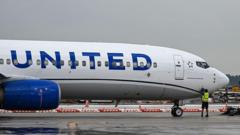High above the city of Chicago, a significant wave of migratory birds takes to the skies during the peak spring migration in late April. For these small creatures, navigating the urban wilderness presents multiple dangers, particularly due to the presence of expansive glass structures. The risks are heightened at the McCormick Place conference center, situated along the picturesque Lake Michigan coastline, which has been documented as one of the deadliest locations for these birds.
Birds that typically thrive in natural settings often fail to recognize glass as an obstacle, mistaking it for open air. The reflective surfaces of urban skyscrapers can confuse them, with city lights acting as beacons that draw birds into perilous situations. Tragically, the impact can be catastrophic; one single day last fall saw nearly a thousand fatalities at McCormick Place alone.
In response to this alarming trend, the city has rallied volunteers to assist in the urgent task of rescuing injured birds and documenting the unfortunate losses. However, this year, those efforts will be complemented by new protective measures already installed at the conference center to mitigate bird collisions.
Innovative modifications have been made to the windows at the venue, featuring specially designed patterns aimed at making the glass more visible to avian travelers. With these changes, there is hope that the sanctuary will become a safer passage during migration seasons, protecting the delicate balance of urban wildlife. The initiative to protect migrating birds is part of a broader series titled "50 States, 50 Fixes," which highlights local solutions to environmental challenges across the nation.




















